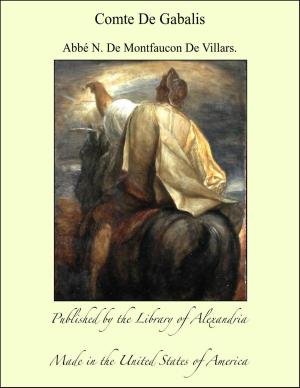A Treatise on the Six-Nation Indians
Nonfiction, Religion & Spirituality, New Age, History, Fiction & Literature| Author: | James Bovell Mackenzie | ISBN: | 9781465510181 |
| Publisher: | Library of Alexandria | Publication: | March 8, 2015 |
| Imprint: | Language: | English |
| Author: | James Bovell Mackenzie |
| ISBN: | 9781465510181 |
| Publisher: | Library of Alexandria |
| Publication: | March 8, 2015 |
| Imprint: | |
| Language: | English |
THE Indian’S CONDITIONS OF SETTLEMENT. The conditions which govern the Indian’s occupation of his Reserve are, probably, so well known, that any extended reference under this head will be needless. He ceded the whole of his land to the Government, this comprising, originally, a tract which pursued the entire length of the Grand River, and, accepting it as the radiating point, extended up from either side of the river for a distance of six miles, to embrace an area of that extent. The Government required the proprietary right to the land, in the event of their either desiring to maintain public highways through it themselves, or that they might be in a position to sanction, or acquiesce in, its use or expropriation by Railway Corporations, for the running of their roads; or for Other national or general purposes. The surrender on the part of the Indian was not, however, an absolute one, there having been a reservation that he should have a Reservation, of adequate extent, and the fruit of the tilling of which he should enjoy as an inviolable privilege. As regards the money-consideration for this land, the Government stand to the Indian in the relation of Trustees, accounting for, and apportioning to, him, through the agency of their officer and appointee, the Indian Superintendent, at so much per capita of the population, the interest arising out of the investment of such money. Sales of lands among themselves are permissible; but these, for the most part, narrow themselves down to cases where an Indian, with the possession of a good lot, of fair extent, and with a reasonable clearing, vested in him, leaves it, to pursue some calling, or follow some trade, amongst the whites; and treats, perhaps, with some younger Indian, who, disliking the pioneer work involved in taking up some uncultured place for himself, and preferring to make settlement on the comparatively well cultivated lot, buys it. The Government, also, allow the Indian, though as a matter of sufferance, or, in Other words, without bringing the law to bear upon him for putting in practice what is, strictly speaking, illegal, to rent to a white the lot or lots on which he may be located, and to receive the rent, without sacrifice or alienation of his interest-money
THE Indian’S CONDITIONS OF SETTLEMENT. The conditions which govern the Indian’s occupation of his Reserve are, probably, so well known, that any extended reference under this head will be needless. He ceded the whole of his land to the Government, this comprising, originally, a tract which pursued the entire length of the Grand River, and, accepting it as the radiating point, extended up from either side of the river for a distance of six miles, to embrace an area of that extent. The Government required the proprietary right to the land, in the event of their either desiring to maintain public highways through it themselves, or that they might be in a position to sanction, or acquiesce in, its use or expropriation by Railway Corporations, for the running of their roads; or for Other national or general purposes. The surrender on the part of the Indian was not, however, an absolute one, there having been a reservation that he should have a Reservation, of adequate extent, and the fruit of the tilling of which he should enjoy as an inviolable privilege. As regards the money-consideration for this land, the Government stand to the Indian in the relation of Trustees, accounting for, and apportioning to, him, through the agency of their officer and appointee, the Indian Superintendent, at so much per capita of the population, the interest arising out of the investment of such money. Sales of lands among themselves are permissible; but these, for the most part, narrow themselves down to cases where an Indian, with the possession of a good lot, of fair extent, and with a reasonable clearing, vested in him, leaves it, to pursue some calling, or follow some trade, amongst the whites; and treats, perhaps, with some younger Indian, who, disliking the pioneer work involved in taking up some uncultured place for himself, and preferring to make settlement on the comparatively well cultivated lot, buys it. The Government, also, allow the Indian, though as a matter of sufferance, or, in Other words, without bringing the law to bear upon him for putting in practice what is, strictly speaking, illegal, to rent to a white the lot or lots on which he may be located, and to receive the rent, without sacrifice or alienation of his interest-money















